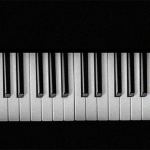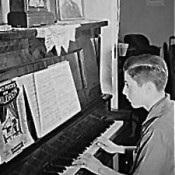 The piano and the pianist have a relationship. It’s different from the violinist who cradles the instrument under his chin or the cellist whose body enfolds the instrument. It’s different from the woodwind or brass player who constantly breathes the life of music through the instrument. It’s certainly different from the singer who is their instrument. read the rest
The piano and the pianist have a relationship. It’s different from the violinist who cradles the instrument under his chin or the cellist whose body enfolds the instrument. It’s different from the woodwind or brass player who constantly breathes the life of music through the instrument. It’s certainly different from the singer who is their instrument. read the rest Dec 032014
 The piano and the pianist have a relationship. It’s different from the violinist who cradles the instrument under his chin or the cellist whose body enfolds the instrument. It’s different from the woodwind or brass player who constantly breathes the life of music through the instrument. It’s certainly different from the singer who is their instrument. read the rest
The piano and the pianist have a relationship. It’s different from the violinist who cradles the instrument under his chin or the cellist whose body enfolds the instrument. It’s different from the woodwind or brass player who constantly breathes the life of music through the instrument. It’s certainly different from the singer who is their instrument. read the rest 
